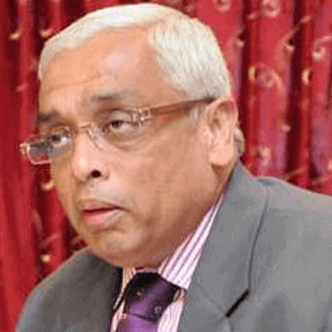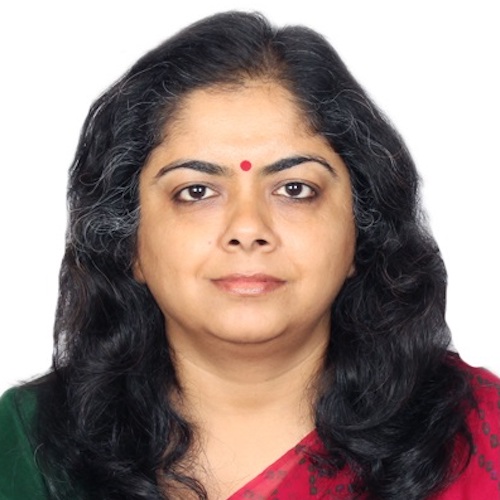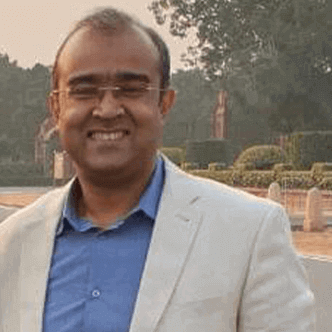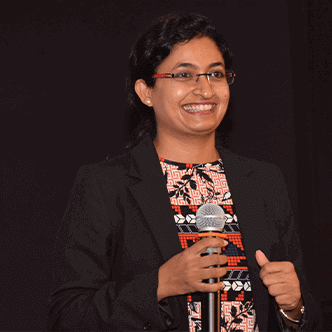





Gopalaraman Padmanabhan, (DB: 29/05/1955) a post graduate in Economics from Kerala University and a Masters in Business Administration from the Birmingham Business School holds extensive experience and expertise in bank regulation and supervision, development of foreign exchange/securities markets in India, information technology and payment systems, with more than 35 years of experience with the RBI in various capacities i.e. recommending and implementing policies, systems, guidelines and regulations relating to the banking, financial services and securities sector of the country.
Padmanabhan was the Chairman of the Committee to implement GIRO in the country and has been involved in the implementation of new e-Treasury system in the Reserve Bank. He was also involved in the operationalisation of the first of its kind ISO 20022 standards based RTGS System and the digitisation of payment transactions.
Padmanabhan was also the Chairman of the Technical Committee on Services/Facilities for Exporters and a part of the think tank to manage market volatility, as well as a member of the Governing Council of the Institute for Development & Research in Banking Technology, a banking research institute established by RBI. He represented RBI in the Committee on Payment and Settlement Systems, Basel and was also inducted into the Steering Group of the CPSS-IOSCO for Review of Standards.
As a member of the Working Group of the CPSS, Basel, Padmanabhan worked on the report on Principles for Financial Market Infrastructures and also chaired the International Working Group set up by CPSS(now CPMI) on Non-banks. He was one of the persons responsible for drafting the Sodhani Committee's report in 1995 on the foreign exchange market and measures for widening and deepening the market, and has supervised the revision of the Internal Control Guidelines for Foreign Exchange Business in 1996. Padmanabhan was also a member of the internal group that prepared and submitted a Technical Paper on Asset -Liability Management for Indian banks which was accepted by the Bank and formed the basis for Reserve Bank of India's initiative.
On superannuating while holding position of Executive Director from the RBI, Padmanabhan was appointed as Non-Executive Chairman of Bank of India in Aug 2015. He held this position for 5 years till Aug 2020. Padmanabhan advises several firms on banking/ foreign exchange and payment system and other regulatory issues. He also holds Board positions in Axis Bank, Aditya Birla Sunlife AMC Trustee Board and in Haldyn Glass.

An Economist by training, Anna is a post-graduate from Delhi School of Economics and an Economics (Hon) from SRCC. She worked as a Lecturer in Delhi University and Research Associate in TERI before joining the Indian Economic Services (IES), Government of India. Within the Government, she has worked in various senior capacities in Ministry of Finance and Ministry of Civil Aviation. She is currently working as a Senior Adviser and Head of Department (Data Management & Analysis) in NITI Aayog. She heads the Women Entrepreneurship Platform launched by NITI Aayog on March 8, 2018. She also leads the Artificial Intelligence (AI), Block chain initiative of NITI Aayog. She has experience in wide range of subjects in Infrastructure, PPPs and Banking sector, etc.
National Payments Corporation of India (NPCI) was incorporated in 2008 as an umbrella organization for operating retail payments and settlement systems in India. NPCI has created a robust payment and settlement infrastructure in the country. It has changed the way payments are made in India through a bouquet of retail payment products such as RuPay card, Immediate Payment Service (IMPS), Unified Payments Interface (UPI), Bharat Interface for Money (BHIM), BHIM Aadhaar, National Electronic Toll Collection (NETC Fastag) and Bharat BillPay.NPCI also launched UPI 2.0 to offer more secure and comprehensive services to consumers and merchants.
NPCI is focused on bringing innovations in the retail payment systems through use of technology and is relentlessly working to transform India into a digital economy. It is facilitating secure payments solutions with nationwide accessibility at minimal cost in furtherance of India's aspiration to be a fully digital society.
For more information, visit: https://www.npci.org.in/
Payments Council of India was formed under the aegis of Internet and Mobile Association of India (IAMAI) in the year 2013 catering to the needs of the digital payment industry. The Council was formed inter-alia for the purposes of representing the various regulated non-banking payment industry players, to address and help resolve various industry level issues and barriers which require discussion and action. The council works with all its members to promote payments industry growth and to support our national goal of 'Cash to Less Cash Society' and 'Growth of Financial Inclusion' which is also the Vision Shared by the RBI and Government of India. PCI works closely with the regulators i.e. Reserve Bank of India (RBI), Finance Ministry and any similar government, departments, bodies or Institution to make 'India a less cash society'.
For more information, visit: http://paymentscouncil.in/
Fintech Convergence Council (FCC) after successfully hosting the largest Virtual Fintech Conference - Global Fintech Fest in the month of July 2020, and partnered with the Monetary Authority of Singapore (MAS) as Global Satellite Event Partner for Singapore Fintech Festival (SFF) 2020 to host the India leg of Singapore Fintech Festival (SFF). The India Leg of Singapore Fintech Fest (SFF) was organized by FCC and UNCDF jointly.
Fintech Convergence Council (FCC) represents the FinTech industry and traditional companies in the BFSI space. The purpose of the council is to encourage collaboration, seek complementarities and build synergy between leading BFSI companies and the emerging FinTech start-ups. The council has worked towards interpreting the regulatory and legal framework, aggregating the concerns and feedback of the various players within the larger FinTech community, communicating it to regulators and lawmakers, and organizing events and gatherings for the industry participants to meet, share ideas and work together in the interest of creating a safer, more open and more collaborative operating environment through a transparent forum. The vision of the council is to "To proactively work towards growth of fintech and penetration of financial services to support our national goal of financial inclusion, moving towards a digitally empowered country."
It has been the endeavor of FCC to showcase India's Fintech landscape to the world, and no better platform than the Singapore Fintech Festival. The agenda brought together who's who from the Indian Financial space over the 5 day event. The line up of events also included a curated session matching Indian start-ups with global investors. The Deal Friday platform provided a unique opportunity to early-stage fintech start-ups from India to pitch and have one on one meetings with a broad spectrum of investors looking for investment opportunities in India.
For more information, visit: https://www.fintechcouncil.in/






